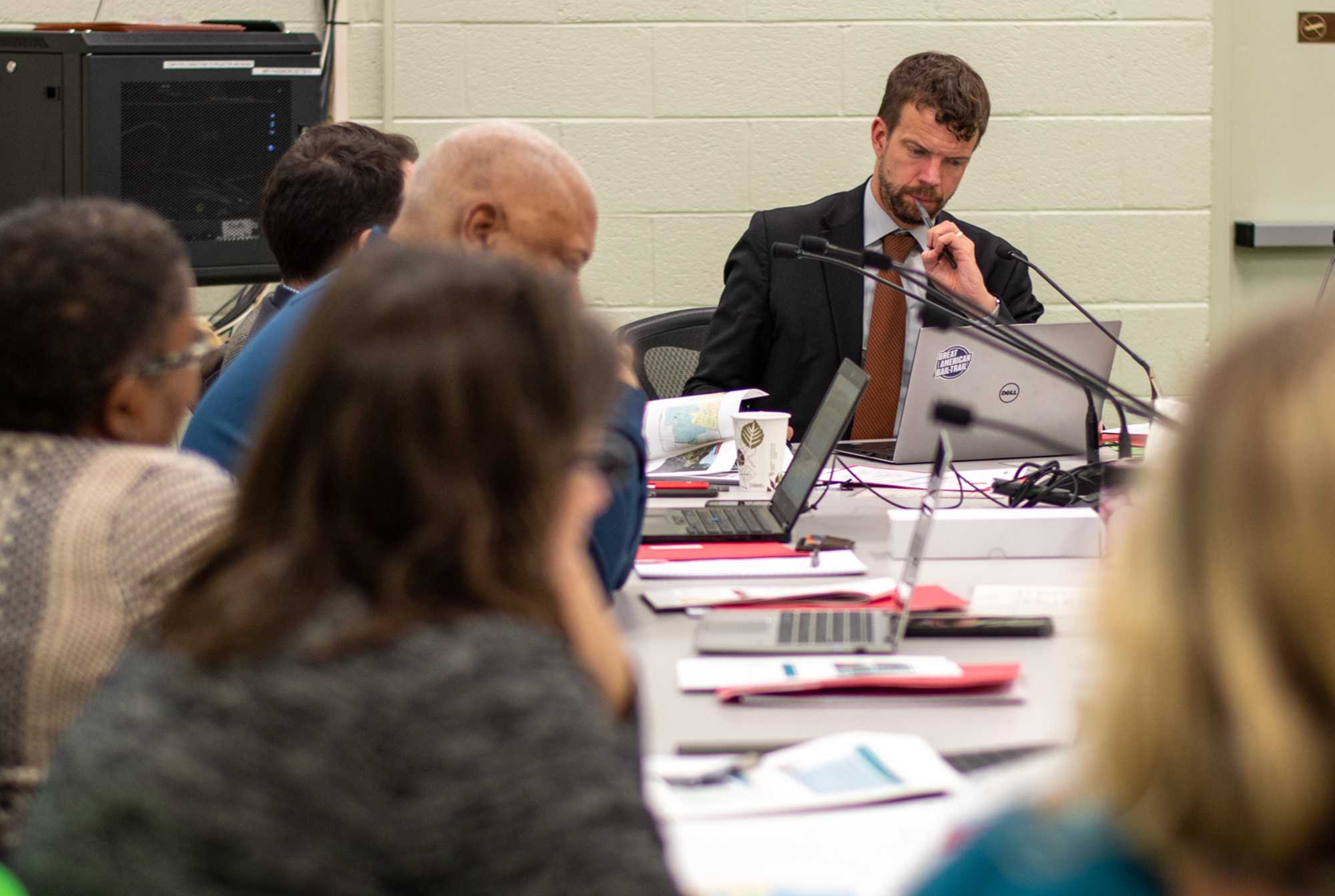College Park City Council members expressed support for allowing the federal government to place refugees in the city — agreeing to send a letter to U.S. Secretary of State Mike Pompeo detailing their stance — during its work session on Tuesday night.
The letter was drafted in response to a presidential executive order passed in September 2019. Signed by President Donald Trump, the order announced the federal government could only place refugees in states and local jurisdictions that had consented to receive them under the State Department’s Reception and Placement Program.
Even before Tuesday’s discussion, though, city Mayor Patrick Wojahn clarified that College Park had been open to accepting refugees.
“[Sending the letter] would mean that we can — as we always have — be a welcoming community to people who are refugees, and not let the current administration be a barrier to that continuing,” Wojahn said.
Read more: [City council backs state hate crime bills supported by family of Richard Collins]
According to city documents, in 2019, the council requested that the federal government “increase the number of refugees that the United States accepts.” In recent years, the number of refugees admitted to the U.S. has only decreased.
In 2016, the last year of the Obama administration, the U.S. allowed up to 110,000 refugees to resettle in the U.S. Over the course of his presidency, Trump has slashed this number multiple times — most recently to 18,000 in September, down from the 30,000 refugees allowed into the country in 2019.
The letter, which Wojahn signed, affirms the council’s support for refugees.
“The City Council recognizes the immense challenges these refugees have faced, and believes that our communities should accept and provide assistance to them,” it reads.
Read more: [After heated debate, College Park City Council approves changes to trash collection rules]
College Park isn’t the only city that has expressed its desire to accept refugees.
Since the executive order was passed, “approximately 42 states, including Maryland, and more than 100 local jurisdictions” have already provided consent, meeting materials said.
To District 4 councilwoman Denise Mitchell, the council’s agreement to send a letter shows that the city is “in tune” with other jurisdictions in the state.
“We are very much in alignment with a lot of other municipalities in the state of Maryland and across the United States,” Mitchell said. “This is my home that I welcome everybody to share.”
Because the city is a member of the National League of Cities — an organization that advocates for cities, towns and municipalities throughout the nation — refugee policy has been a topic officials in College Park have discussed many times with representatives from cities nationwide, Mitchell said.
Mitchell’s support was echoed by her fellow District 4 councilwoman Maria Mackie, who said that it’s important for the city to take action that bolsters its “pro-refugee” policy.
“It’s important for the federal government to know that College Park is willing to take and to help refugees,” Mackie said. “It makes us a place where refugees feel welcome.”
With no objections, the council decided to add the letter to next week’s consent agenda — which allows decisions to be passed with no discussion and in a single motion.



